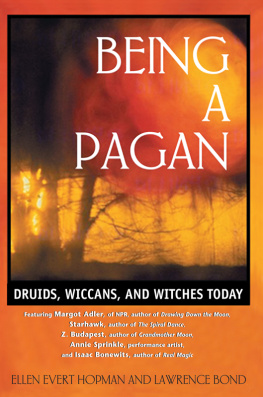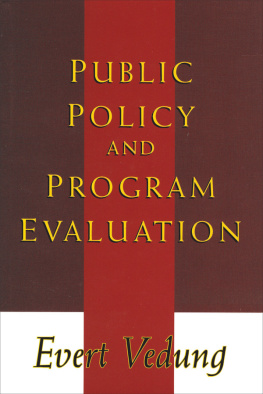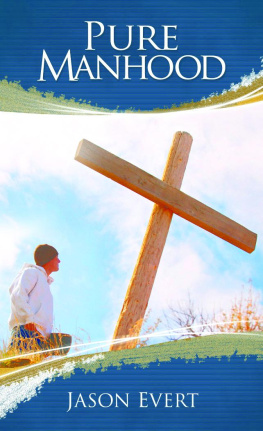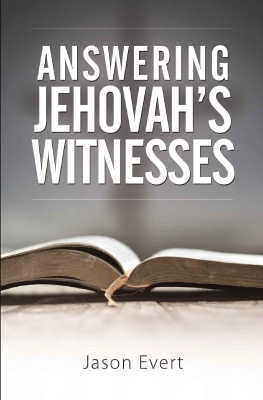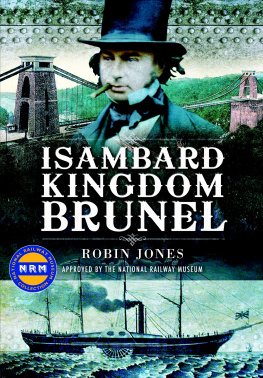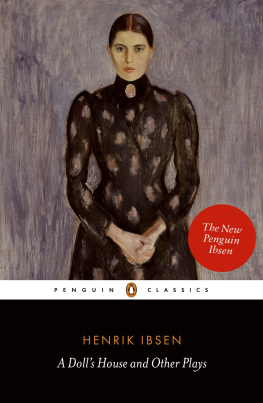Evert Sprinchorn - Ibsens Kingdom
Here you can read online Evert Sprinchorn - Ibsens Kingdom full text of the book (entire story) in english for free. Download pdf and epub, get meaning, cover and reviews about this ebook. year: 2020, publisher: Yale University Press, genre: Detective and thriller. Description of the work, (preface) as well as reviews are available. Best literature library LitArk.com created for fans of good reading and offers a wide selection of genres:
Romance novel
Science fiction
Adventure
Detective
Science
History
Home and family
Prose
Art
Politics
Computer
Non-fiction
Religion
Business
Children
Humor
Choose a favorite category and find really read worthwhile books. Enjoy immersion in the world of imagination, feel the emotions of the characters or learn something new for yourself, make an fascinating discovery.

- Book:Ibsens Kingdom
- Author:
- Publisher:Yale University Press
- Genre:
- Year:2020
- Rating:4 / 5
- Favourites:Add to favourites
- Your mark:
- 80
- 1
- 2
- 3
- 4
- 5
Ibsens Kingdom: summary, description and annotation
We offer to read an annotation, description, summary or preface (depends on what the author of the book "Ibsens Kingdom" wrote himself). If you haven't found the necessary information about the book — write in the comments, we will try to find it.
Ibsens Kingdom — read online for free the complete book (whole text) full work
Below is the text of the book, divided by pages. System saving the place of the last page read, allows you to conveniently read the book "Ibsens Kingdom" online for free, without having to search again every time where you left off. Put a bookmark, and you can go to the page where you finished reading at any time.
Font size:
Interval:
Bookmark:

I BSEN S K INGDOM

K INGDOM

The Man and His Works

Evert Sprinchorn
Yale
UNIVERSITY
PRESS
New Haven & London
Published with assistance from the Ronald and Betty Miller Turner
Publication Fund, and from the foundation established in memory of James Wesley Cooper of the Class of 1865, Yale College.
Copyright 2020 by Evert Sprinchorn. All rights reserved. This book may not be reproduced, in whole or in part, including illustrations, in any form (beyond that copying permitted by Sections 107 and 108 of the U.S. Copyright Law and except by reviewers for the public press), without written permission from the publishers.
Yale University Press books may be purchased in quantity for educational, business, or promotional use. For information, please e-mail (U.K. office).
Set in Postscript Electra and Weiss types by Tseng Information Systems, Inc.
Printed in the United States of America.
Frontispiece: Oil portrait of Ibsen by Erik Werenskjold, 1895, detail.
(Fargetrykk av Henrik Ibsen i brei profilert svart trerme med gullkant inst. Photo: Sunnfjord Museum. https://digitaltmuseum.no/011025152667/trykk-i-ramme/media?i=18&aq=descname%3A%22Trykk+i+ramme%22)
Library of Congress Control Number: 2020933615
ISBN 978-0-300-22866-3 (hardcover : alk. paper)
A catalogue record for this book is available from the British Library.
This paper meets the requirements of ANSI / NISO Z 39.48-1992 (Permanence of Paper).
10 9 8 7 6 5 4 3 2 1
[Critics] endeavor to make me responsible for the opinions expressed by some of the characters in my play [Ghosts]. And yet there is not in the whole work a single opinion, a single utterance, that can be laid to the account of the author. I took good care to avoid that.
Ibsen, Letter of January 6, 1882
If you want objectivity, study objects. You read me to get to know me.
Ibsen, c. 1872, Georg Brandes, Levned, vol. 2: Et Tiaar (Copenhagen and Christiania, 1907), 102
Ibsen, interrogated as to his meaning, replies, What I have said, I have said. Precisely; but the point is that what he hasnt said, he hasnt said.
Bernard Shaw, Plays: Pleasant and Unpleasant, vol. 1 (London, 1898), xxii
[My next work] will be a book that will link my life with my works in an enlightening whole.
Ibsen, speech in Christiania, March 23, 1898. In Henrik Ibsen, Samlede Verker: Hundrersutgave, ed. Francis Bull, Halvdan Koht, and Didrik Arup Seip, 21 vols. (Oslo, 192857), 15:412
Deep inside, a poem within the poem is hidden, and if you grasp that, my people, you grasp the song.
Ibsen, Till de Medskyldige, c. 1864, Samlede Verker: Hundrersutgave, 14:311


In 1898 Henrik Ibsens collected works were published in celebration of his seventieth birthday. This edition printed the plays not by genrehistory plays, poetic dramas, realistic playsbut in the order in which they had been written. The first volume was prefaced by a personal note addressed To The Reader from the master himself, his copperplate handwriting reproduced, in which he expressed his pleasure in that arrangement. He complained that he was being misunderstood by most readers because they came upon his most famous plays without having read what came before. He insisted that only by studying his plays in the order in which they had been written could they be properly comprehended.
It was certainly true then and has been true ever since that almost all who study Ibsen intensely or read him leisurely for their great stories and complicated characters first come upon works like A Dolls House or Ghosts or Hedda Gabler without having read Brand or Peer Gynt. But Ibsen went even further, saying that it was not enough for the serious reader to catch up on the earlier plays; he insisted that they had to be read in the order in which they were written. Only then would the continuity between them become clear and only in that continuity would each individual work reveal its richness of meaning.
If so, why did he not complain earlier? Why wait until 1898? Well, if he had had his way, he might have been rather more forthcoming about his intentions as a writer and more willing to discuss the meaning of his plays. After the furor created by Ghosts and the hostility it created, Ibsen proposed writing his autobiography, which presumably would have had much to say about his work. It was his publisher Hegel who persuaded him to remain silent and distant. Acting as press agent, Hegel advised Ibsen to remain aloof from public discussion. He compared Ibsen to a statue who should not step down from his pedestal and engage with readers. He even encouraged Ibsen to destroy his notes, so that future scholars would have to puzzle out the meaning of his works. Ibsen took those words to heart and thus was born the taciturn, tight-lipped, enigmatic Ibsen, the Norwegian sphinx.
However, years earlier he had informed his readers what lay at the heart of his plays. In the preface to the re-issue of his very first play, Catiline, he said that the major theme of his works was the conflict between what one proposes and what is actually possible, the conflict between ones aims and ones capabilities. This is a subject that offers a bottomless well of possibilities, even more so than such common dramatic themes as revenge or sex. It was an inner conflict that nearly every person has experienced.
For Ibsen, his works were a transcription of his own struggles with this conflict. He never wrote a play just because he had found a good subject. He wrote because he was wrestling with a theme that obsessed him throughout his life. If the serious reader, taking up the plays in order, reaches A Dolls House, he will see that it is only superficially and incidentally about womens rights. The heroine Nora never talks about them.
In his plays Ibsen experienced inwardly the conflict between the two sides of his personality, leading outwardly a life of growing success while experiencing the inner qualms of the imperfect idealist. The inner and outer lives, art and reality, were perfectly coiled around each other. The present book attempts to explore that double helix as the source of Ibsens creativity, a helix that raises him to the level of the philosopher-dramatist and made him the father of modern drama.

First of all I am indebted to ke Leander (19192003), Swedish poet and educator, who revealed to me the hidden splendors of Ibsens plays. While I was studying theater at Columbia University I took his seminar on Ibsen and Strindberg. Under his guiding hand, A Dolls House was transformed from a social problem play with a couple of good acting parts into a multilayered dramatic poem, and the would-be actor into the nascent scholar.
Ryan Hart helped transfer my typewritten manuscript to the computer, and he prepared the diagram of Ibsens poems.
Next pageFont size:
Interval:
Bookmark:
Similar books «Ibsens Kingdom»
Look at similar books to Ibsens Kingdom. We have selected literature similar in name and meaning in the hope of providing readers with more options to find new, interesting, not yet read works.
Discussion, reviews of the book Ibsens Kingdom and just readers' own opinions. Leave your comments, write what you think about the work, its meaning or the main characters. Specify what exactly you liked and what you didn't like, and why you think so.


